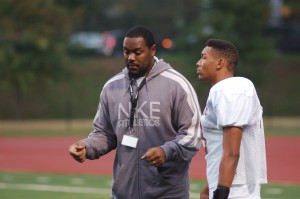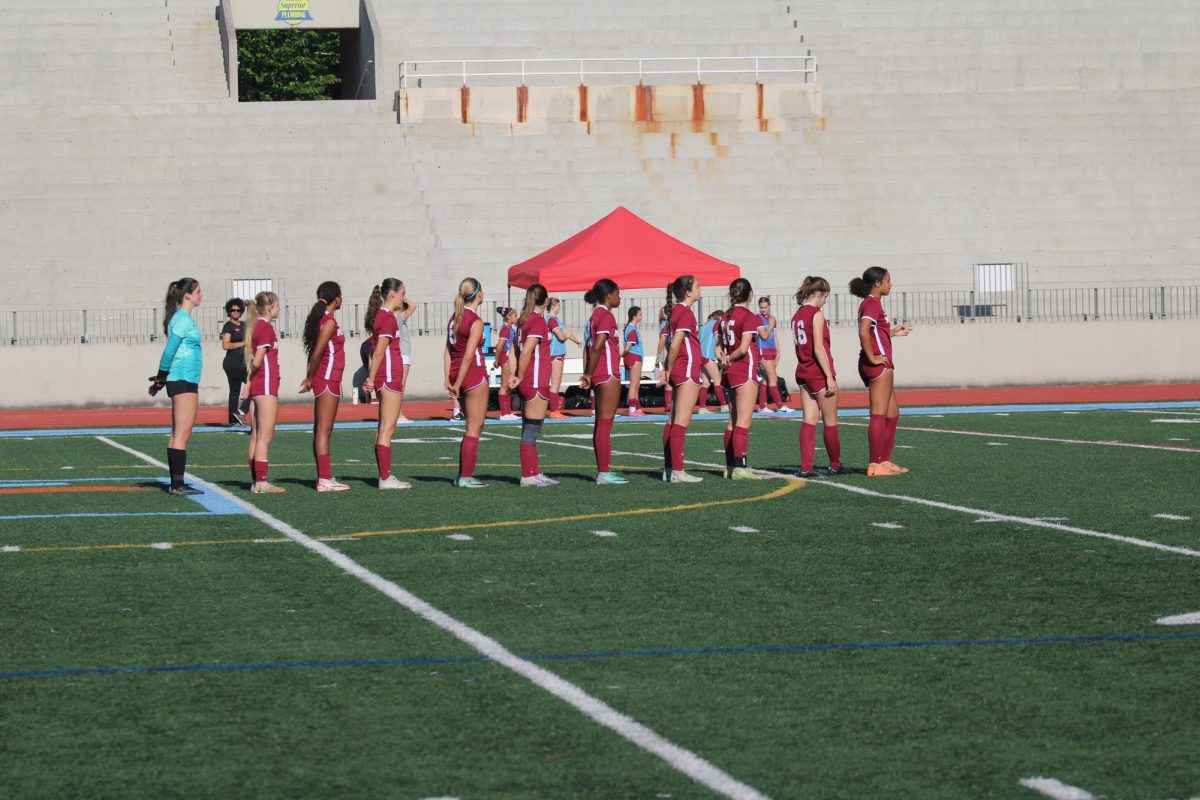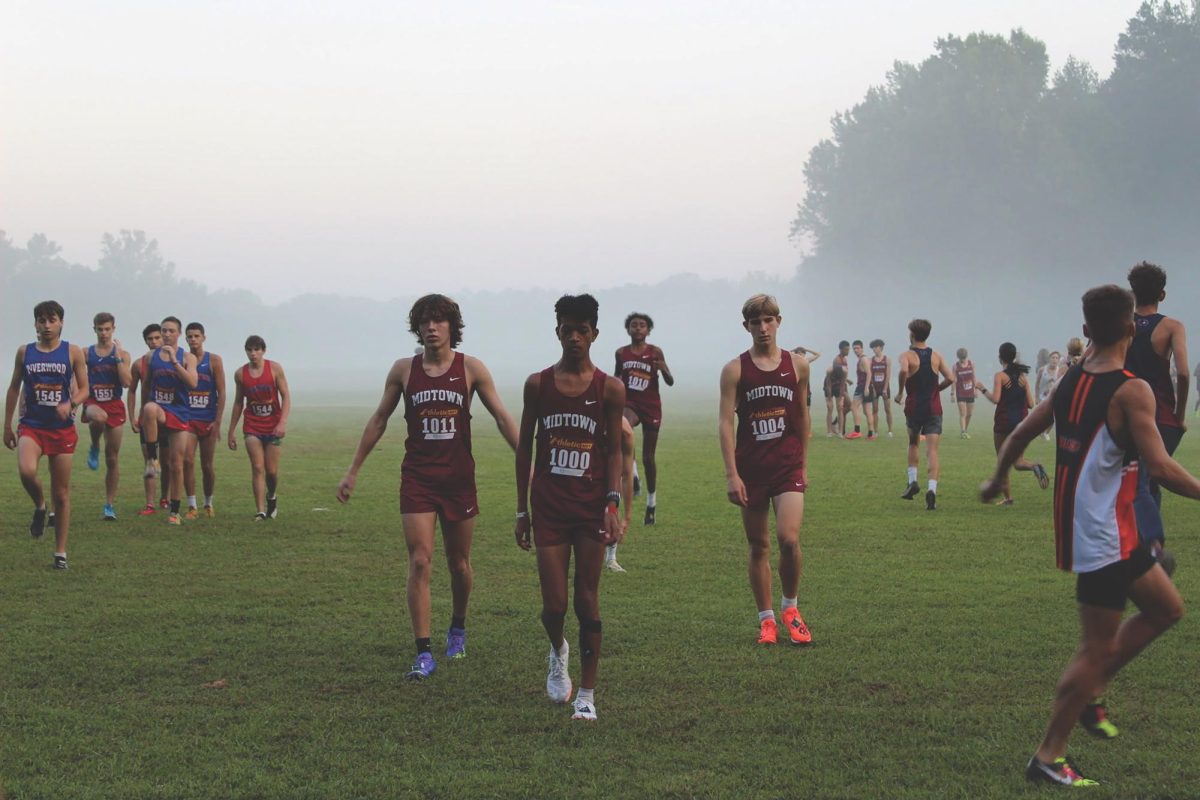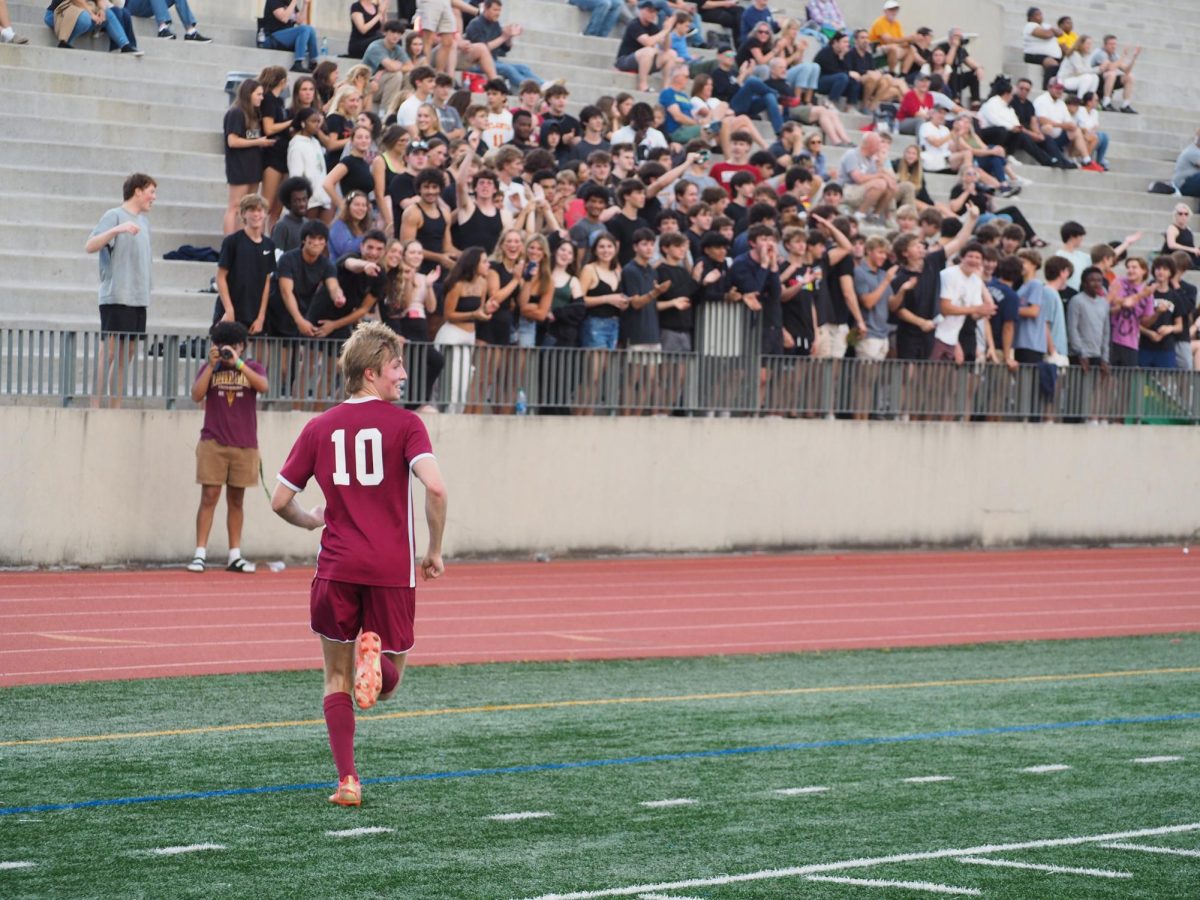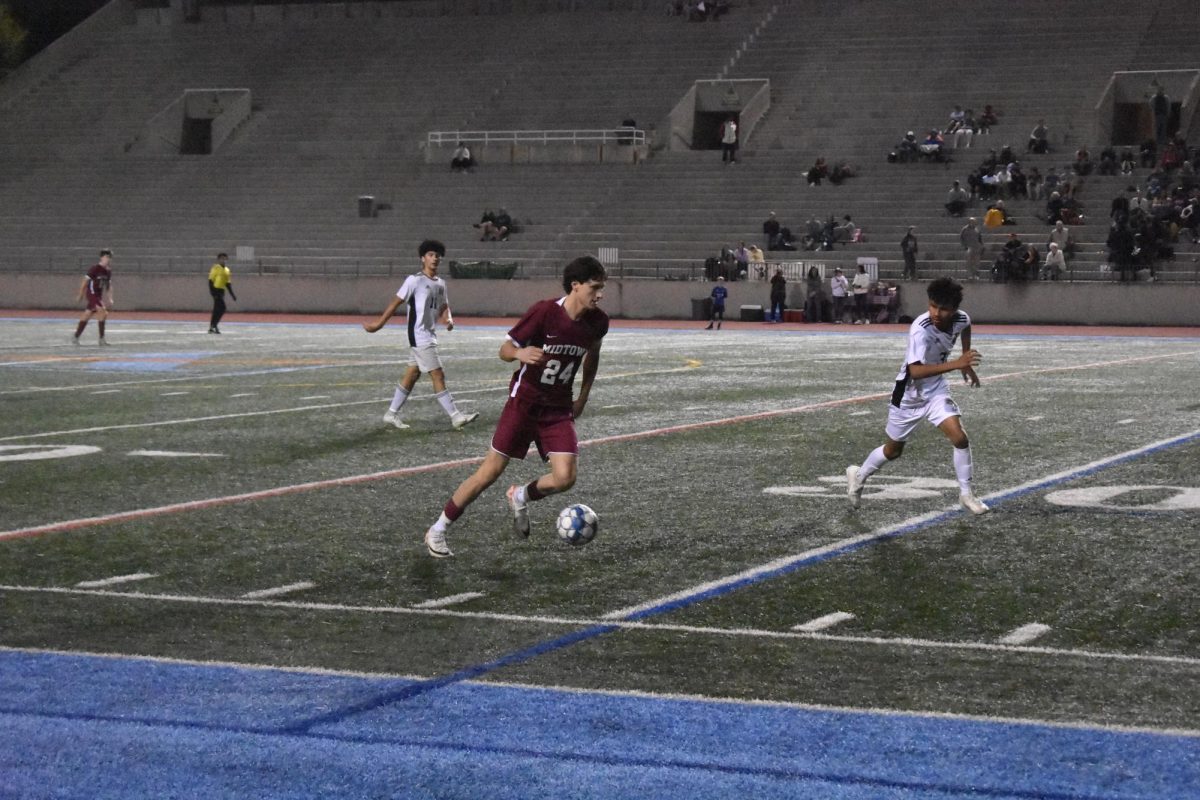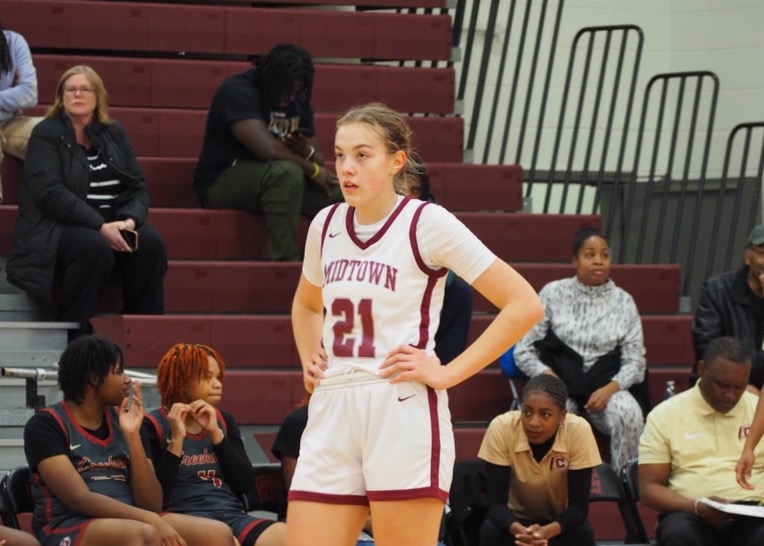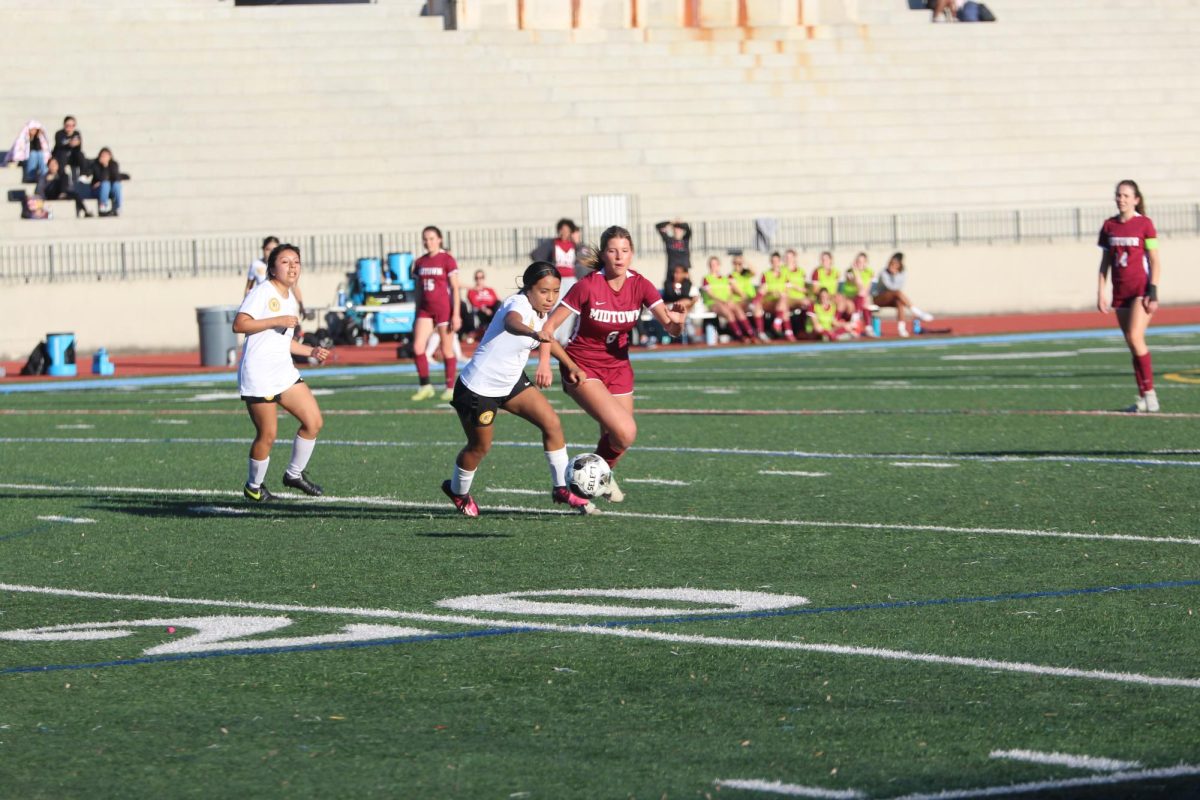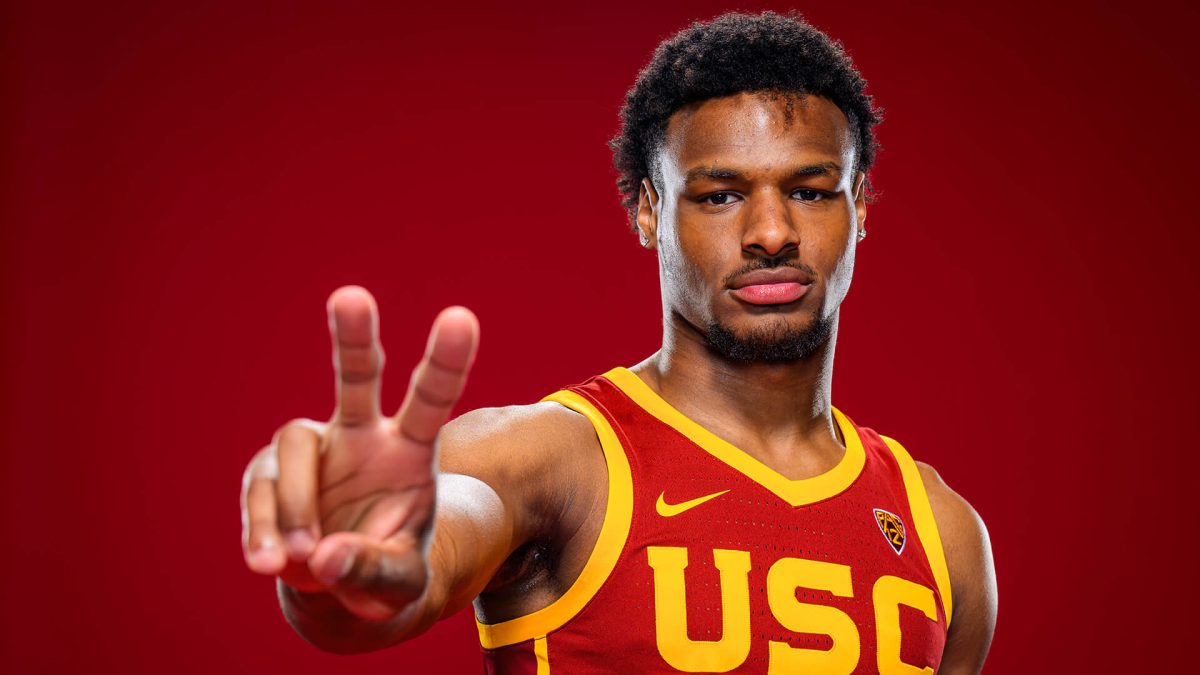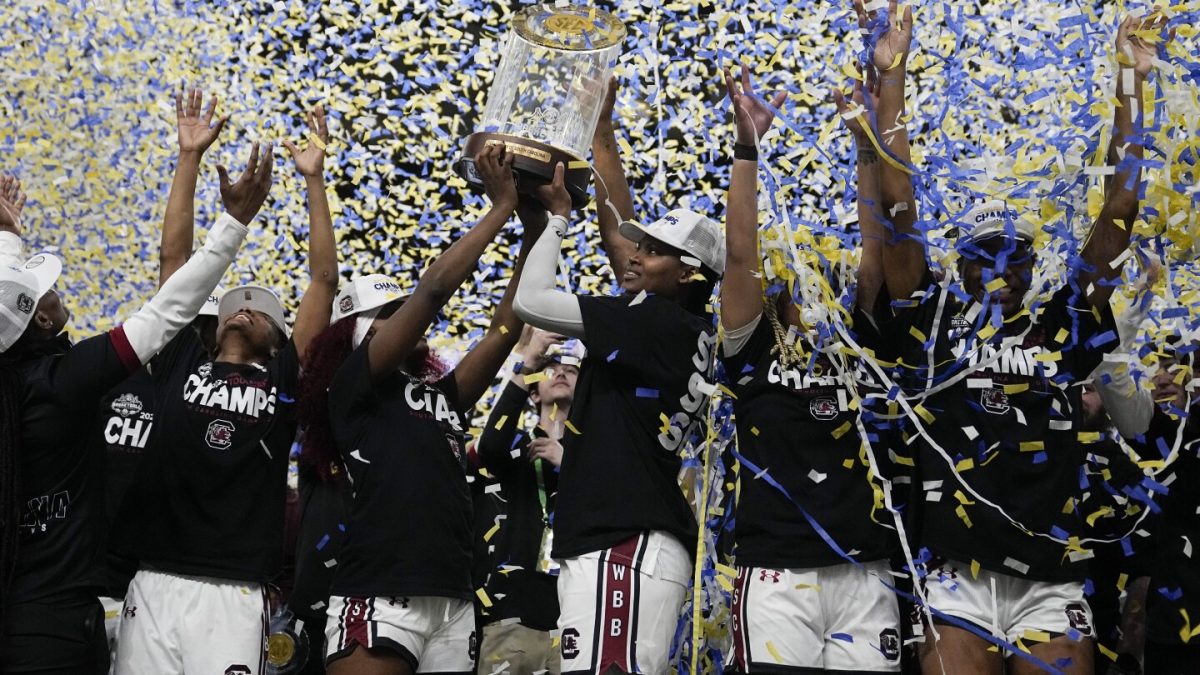
Three Grady football coaches — Earthwind Moreland, Daniel Wilcox and Terry Jones- — have over 16 combined years of professional experience in the National Football League. Two even took home Super Bowl rings.
Moreland, the head coach, came to Grady last year to rebuild the team after the Gray Knights lost their coach and a number of players following a recruiting investigation. Wilcox and Jones have been with the Grady team for two years and came to the school with Moreland.
Moreland began playing football at the early age of four. He said he was mainly influenced from watching his older brother, Xavier, play football.
“I liked football when I was young; it was very fun just being able to run around in a big open space,” Moreland said. “Growing up behind my brother, watching him, and looking at him — that was something I wanted to do, and be just like him.”
Moreland, a Grady graduate, played basketball and ran track in high school, in addition to playing football. In Moreland’s senior year, Grady’s basketball team was ranked No. 1 in the state the entire regular season but lost in the Final Four of the state championship tournament to Randolph-Clay.
His head football coach, Homer Hill, and his offensive coordinator, Ronnie Millen, whom Moreland succeeded as head coach, taught Moreland many life lessons.
“I learned a lot from them in terms of doing what was right, being on time and knowing what it took to get to the next level,” Moreland said. “Millen was an All-American, so he told us what we had to do on this level so we could excel on the next level.”
Moreland continued his football career at Georgia Southern where the team won a national championship under head coach Paul Johnson, the current head coach at Georgia Tech. At Georgia Southern, Moreland began his career playing wide receiver but was later moved to defensive back by Johnson. This position switch allowed him to show his full potential and to pursue a professional football career.
He began his four-year professional career in 2001 with the New York Jets and went on to play for the Cleveland Browns and New England Patriots. While Moreland was playing for the Patriots in 2004 and 2005, they won the Super Bowl, which he views as the biggest accomplishment in his football career.
“Playing for the NFL is something that I’d always encourage people to do,” Moreland said. “It’s a once in a lifetime thing. It’s something you dream about as a young kid and for it to come true is just different.”
After ending his professional playing career, Moreland became an assistant football coach at Grady. His said his entry into coaching was a way to continue to be in the athletic realm without being a classroom teacher. He believes that coaching allows him to give back and share his knowledge on how to get to the next level. Moreland decided to come back to Grady to give back to the community that originally gave to him.
“To see the kids go on to the next level, succeed on and off the field, and have past players return to teach the current players is the biggest joy to me,” Moreland said.
Wilcox is Grady’s assistant head coach. He began playing football at five when his mother wanted to get rid of his idle time. At first, Wilcox did not enjoy football, but the more he played, the more he seemed to like it. In his football career, he was most successful as a tight end.
“I remember my first game; I was scared. I cried because all the other players looked so big with the pads on, but I didn’t realize I looked big too,” Wilcox said. “But after that, I began to fall in love with the game, and you couldn’t pull me off the field.”
Wilcox continued to play football at Decatur High School. His coach at Decatur, Freddy Jones, also acted as Wilcox’s first father figure.
“He taught me to always have respect for the player; you treat them like men, which teaches them to give you respect in return,” Wilcox said.
After high school, Wilcox received a partial football scholarship to Georgia Military College. After leaving Georgia Military, he played at Appalachian State, where he became an All-American.
Wilcox started his professional football career as an undrafted free agent in 2001 for the New York Jets. After two seasons, he was traded to the Tampa Bay Buccaneers and the Baltimore Ravens. While Wilcox was playing for the Buccaneers in 2003, the team won the Super Bowl. He then took time off from the NFL before returning and signing with the Ravens where he played five seasons, totaling eight years in the NFL.
“I took away an awful lot from the NFL, [including] integrity, professionalism and just something different from each team,” Wilcox said. “From my teammates, I learned to become an all-around player and professional, which is when you become a real student of the game.”
Wilcox said he became a coach primarily because of how much his high school coach influenced him. He wanted to play the same role for young athletes, where he helps raise them into young men.
“The best part about coaching is watching the kids get better,” Wilcox said. “You get a chance to see a kid that couldn’t catch a ball all of the sudden catch a touchdown or even a kid that couldn’t stand properly turn into the player with the best technique out of everybody.”
Jones is Grady’s wide receiver and quarterback coach. He was born and raised in Tuscaloosa, Ala., where his father worked as a University of Alabama football weight trainer for 25 years. Jones didn’t begin to play until his junior year when his father pressured him to play football. “When I finally got out on the field, I was actually pretty good,” Jones said.
In high school, Jones played for Central Tuscaloosa as a defensive end. His high school team ranked fourth or fifth in the nation at that time he said. The coach was a disciplinarian, worked the players hard, and kept them in the classroom. At the time, Jones resented his coach’s strictness, but now he appreciates what it taught him, he said.
Jones continued his football career in Tuscaloosa on a scholarship to Alabama. He started as a tight end all four years. Three of the four years he played, the team had a winning record, including a national championship. During those years, Jones came to realize that his teammates were family. Jones’ father was one of his college coaches. No matter what Jones was called at home, his father always referred to him by his last name during football practice.
Jones was drafted in the fifth round of the NFL Draft by the Ravens, which he says is his biggest accomplishment. He spent the first three years of his NFL career in Baltimore, and he finished his NFL career with the San Francisco 49ers.
“It was pretty cool to play a child’s game and get paid for it, but I also learned that it was a business, and I couldn’t take anything personal,” Jones said. “My performance was tied to a paycheck; so, I had to make sure that when I went out there I performed, or I wouldn’t be able take care of myself.”
Jones became a coach because he wanted to help young men get the opportunity to get away from any tough situation they may be in and go to college. Jones knew a lot of men who wouldn’t be able to get a higher education if they didn’t have football. As a high school coach, he helped lead his first high school football team, Tucker, to two state championships.
“The best part about coaching is seeing the kids at the beginning of the summer, then seeing them come out on Friday nights more developed as a player, or even see them become better students and people,’’ Jones said. “I just enjoy seeing the kids mature and grow up.”






